Search Results
Showing results 1401 to 1420 of 1541
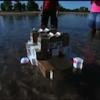
Milk Carton Boats
Source Institutions
This activity (on page 2 of the PDF SciGirls Activity: Milk Carton Boat) is a full inquiry investigation into boat hull design.

How Might Elevated CO2 Affect Plants
Source Institutions
In this activity, learners conduct an experiment to investigate the effect of elevated levels on CO2 on plant growth.

Balloon Impacts
Source Institutions
In this activity, learners measure the diameter of their water balloons, model an impact, measure the diameter of the “crater” area, and determine the ratio of impactor to crater.

Alien Encounter
Source Institutions
In this activity, learners use multiplication skills to get groups of aliens safely back to their planet.
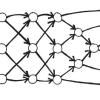
Beat the Clock: Sorting Networks
Source Institutions
Even fast computers are limited to how quickly they can solve problems. One way to speed things up is to use several computers at once.
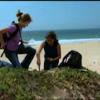
Sand Dunes
Source Institutions
This outdoor activity (on page 2 of the PDF under SciGirls Activity: Sand Dunes) is a full inquiry investigation into how the amount of moisture in a sand dune relates to the number of plants growing

Traveling Networks
Source Institutions
In this geometry activity, learners explore networks painted on playgrounds, such as a four square court, and draw their own.

Keep a "SLOG" (Sleep Log)
Source Institutions
In this activity (1st on the page), learners keep a "SLOG" or Sleep Log to study their sleep patterns.

Make a Model of a Home Made From Shipping Containers
Source Institutions
In this activity, learners watch a video to learn about a couple who built a home out of shipping containers in Brooklyn, New York.
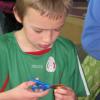
Cutting it Down to Nano
Source Institutions
This simple activity uses paper and scissors to convey two key concepts to learners: the nanoscale is very small and working on the nanoscale requires special tools.

Off Base
Source Institutions
In this activity, learners explore the factors that tend to resist changes in pH of the ocean and why the ocean is becoming more acidic.

Horton Senses Something Small
Source Institutions
In this story time program, young learners listen to the Dr.

What's Hiding in the Air?: Rubber Band Air Test
Learners build devices from rubber bands to test for invisible air pollutants.

Biomimicry: Synthetic Gecko Tape Through Nanomolding
Source Institutions
In this activity/demo, learners examine a synthetic gecko tape with micron sized hairs that mimics the behavior of the gecko foot.
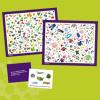
I Spy Nano!
Source Institutions
In this game, learners try to find nano-related objects on a game board. Learners investigate the different ways nano is in the world around us.

Stabilization Wedges Game
Source Institutions
This game introduces learners to the scale of the greenhouse gas problem, plus technologies that already exist to dramatically reduce our carbon emissions and prevent climate change.

Statistics: Something Fishy
Source Institutions
In this math lesson, learners apply the concepts of ratio and proportion to the capture-recapture statistical procedure.

Combustion
Source Institutions
In this chemistry activity, learners discover that the weight of the product of combustion is greater than that of the starting material.

Plant Parts You Eat
Source Institutions
In this food science activity, learners observe different plant-originated foods.
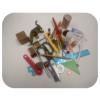
Guess My Rule
Source Institutions
In this simple game, learners start to understand how to sort and categorize objects by trying to guess the connection between three items that someone else has chosen.
